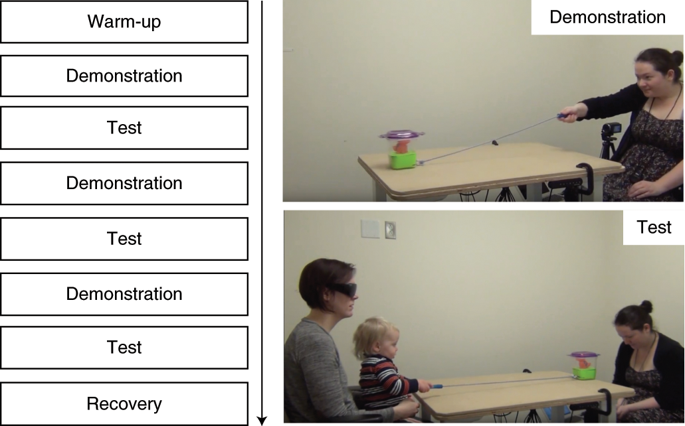Nature Human Behaviour ( IF 21.4 ) Pub Date : 2020-01-20 , DOI: 10.1038/s41562-019-0814-0 Kelsey Lucca 1, 2 , Rachel Horton 1 , Jessica A Sommerville 1, 3

|
The ability to decide whether, when and how to try is central to human learning. We investigated whether infants can make rational inferences about when and how to try on a novel problem-solving task. After learning from an adult that the task was either easy, difficult or impossible to solve, infants varied in whether, when and how they tried based on the type of social evidence that they received and on their own ongoing experience with the task. Specifically, infants formed expectations about the task, their own ability to solve the task and the experimenter’s ability to solve the task, in light of accumulating evidence across time that impacted their time spent trying, trying force, affect, and help-seeking behaviour on the task. Thus, infants flexibly integrate social input and first-hand experience in a dynamic fashion to engage in adaptive persistence.
中文翻译:

婴儿理性地决定何时以及如何部署努力
决定是否、何时以及如何尝试的能力是人类学习的核心。我们调查了婴儿是否可以对何时以及如何尝试新的解决问题的任务做出合理的推断。在从成年人那里得知任务是容易、困难或不可能解决后,婴儿会根据他们收到的社会证据的类型以及他们自己对任务的持续经验,在是否、何时以及如何尝试方面有所不同。具体来说,婴儿形成了对任务、他们自己解决任务的能力和实验者解决任务的能力的期望,因为随着时间的推移积累的证据会影响他们在尝试、尝试强迫、影响和寻求帮助行为上所花费的时间。任务。因此,











































 京公网安备 11010802027423号
京公网安备 11010802027423号